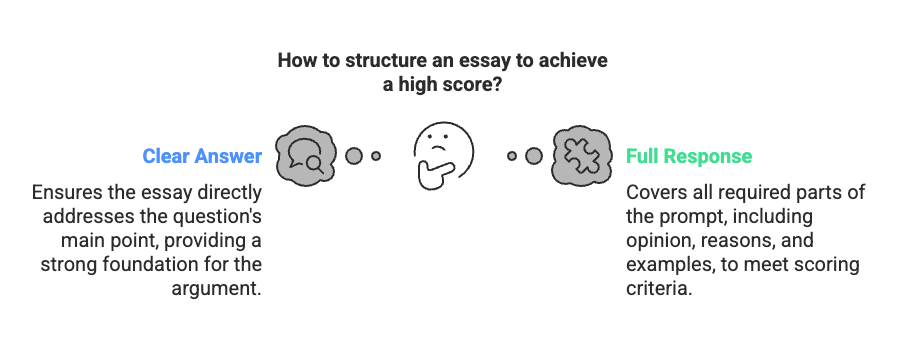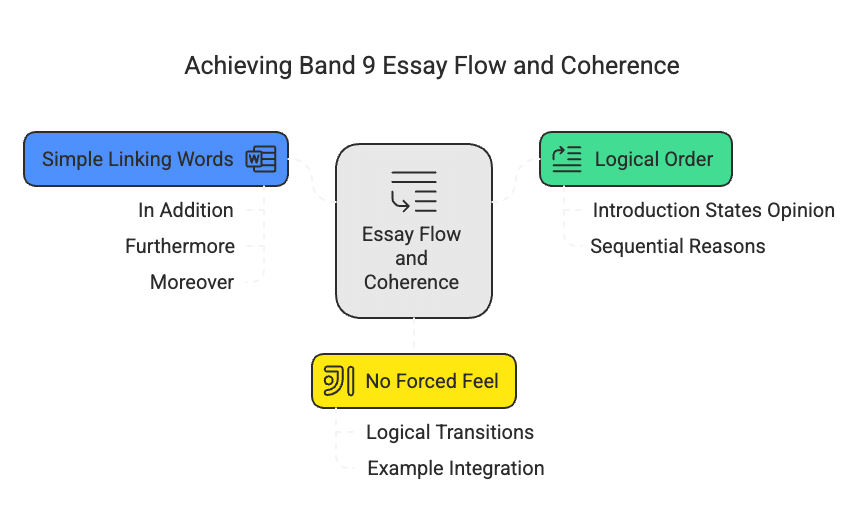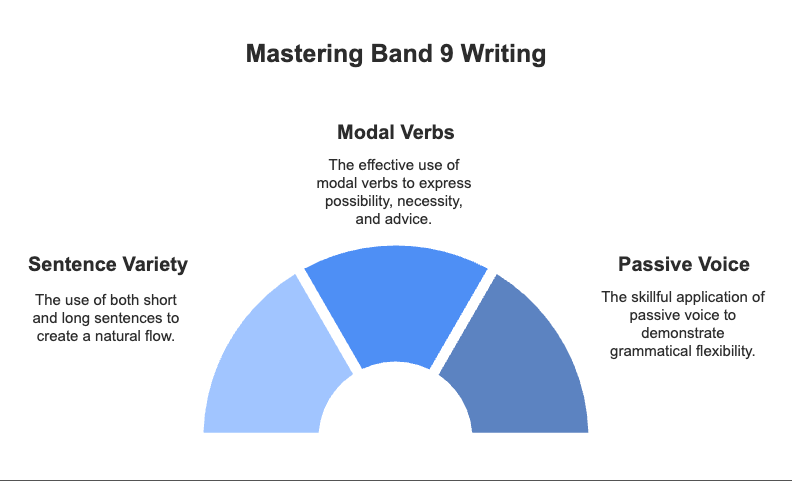Sample Essay with Tips | Writing for Academic IELTS PDF Download
Q.1. Doing an enjoyable activity with a child can develop better skills and more creativity than reading. To what extent do you agree? Use reasons and specific examples to explain your answer.
Sample Answer:
- Parents throughout the world spend time reading with their offspring to prepare them for a school where their literacy skills are further developed; however, recent research suggests that focusing on reading at an early age can be detrimental, and participating in fun activities would be far more beneficial. I am a strong advocate of this approach, and its benefits will be covered in this essay.
- A fundamental reason for this is that there is no biological age for reading, and pushing infants to acquire this skill before they are ready could have repercussions. For example, in the UK, many boys are reluctant readers, possibly because of being forced to read, and this turned them off reading. By focusing on other activities and developing other skills such as creativity and imagination, when they are ready to read, they usually acquire this skill rapidly.
- In addition, the importance of encouraging creativity and developing a child's imagination must be acknowledged. Through play, youngsters develop social and cognitive skills; for example, they are more likely to learn vocabulary through context rather than learning it from a book.
- Furthermore, play allows youngsters to mature emotionally and gain self-confidence. There is no scientific research which suggests reading at a young age is essential for a child's development, moreover, evidence suggests the reverse is true. In Finland, early years' education focuses on playing.
- Reading is only encouraged if a child shows an interest in developing this skill. This self-directed approach certainly does not result in Finnish school leavers falling behind their foreign counterparts. In fact, Finland was ranked the sixth-best in the world in terms of reading.
- Despite being a supporter of this non-reading approach, I strongly recommend incorporating bedtime stories into a child's daily routine. However, reading as a regular daytime activity should be swapped for something which allows the child to develop other skills.
Why is this a Band 9 Essay?
Task achievement
The IELTS Writing Band Descriptors say a Band 9 essay for Task Achievement must:
- Answer all parts of the question completely – Nothing is left out.
- Give a clear opinion with strong, detailed support – The writer takes a stand and backs it up with good reasons and examples.
Answering the Question Right
To score high in Task Achievement, you have to match what the question asks. This prompt wants your opinion on whether fun activities beat reading for kids’ skills and creativity, plus reasons and examples to back it up. If you just talk about reading’s benefits or skip examples, you’d miss the mark. This essay gets it exactly right.
- Clear Answer: The question asks, “To what extent do you agree?” The essay answers straight away in the introduction: “I am a strong advocate of this approach” (meaning fun activities over reading). It’s super clear the writer agrees a lot.
- Full Response: It hits all three parts—opinion (“I agree”), reasons (e.g., no set age for reading, creativity matters), and examples (e.g., UK boys, Finland). Nothing’s left out, fitting Band 9’s “answers all parts” rule.

Staying on Track
Task Achievement means sticking to the question with detailed answers:
- No Wandering: The essay focuses on skills and creativity from activities vs. reading—no off-topic stuff like food or sports. It stays right on the prompt.
- Strong Examples: It uses examples like Finland ranking sixth in reading despite less early focus on it. The reasons and examples all show why activities work better, making it “well-detailed” for Band 9.
Coherence and Cohesion
Coherence and Cohesion is about how well the essay flows and connects. Is it easy to read? Do the ideas link together smoothly?
The IELTS Writing Band Descriptors say a Band 9 essay for Coherence and Cohesion:
- Uses cohesion so naturally it attracts no attention – The connections feel smooth, not forced.
- Skilfully manages paragraphing – The structure is clear and well-organized.
This essay nails these points, earning a Band 9 in Coherence and Cohesion. Here’s why:
Smooth and Natural Connections
For Band 9, the essay’s ideas need to flow without the reader noticing the “glue” holding them together. This essay does that well.
- Logical Order: The ideas follow a clear path. The introduction states the opinion (fun activities beat reading), then each paragraph adds a new reason—first, no set age for reading, then creativity from play, and finally emotional growth. Each one builds on the last, so it feels natural, not jumpy.
- Simple Linking Words: It uses easy connectors like “in addition” and “furthermore” (paragraph 2) and “moreover” (paragraph 3). These words show what’s coming next—like adding another reason—without sounding stiff or fancy. They’re common enough to blend in, just as Band 9 wants: “attracts no attention.”
- No Forced Feel: The essay doesn’t overdo it with big linking phrases like “on the contrary” when they don’t fit. Instead, it lets the logic do most of the work—like how “play builds creativity” leads smoothly into Finland’s example without needing much glue.

Clear and Smart Paragraphing
Band 9 means the essay’s structure is spot-on—easy to follow with paragraphs that work together. This essay gets that right.
- Good Introduction: It starts simple but strong: it mentions reading with kids, brings up research favoring activities, and says, “I am a strong advocate of this approach.” This sets up the opinion and hints at what’s coming, making the essay’s direction clear.
- Body Paragraphs That Flow: Each paragraph has a main point (topic sentence) and sticks to it. Paragraph 1 says pushing reading too early can hurt (e.g., UK boys example), Paragraph 2 says play boosts creativity (e.g., Finland), and Paragraph 3 says it helps emotions (e.g., no need for early reading). They’re easy to follow and move smoothly to the next idea—like how creativity links to confidence.
- Solid Conclusion: It wraps up by sticking to the opinion: activities beat daytime reading, but bedtime stories are okay. It’s short, ties back to the start, and doesn’t wander—showing Band 9’s “skilful paragraphing.”
Lexical resource
Lexical Resource is about showing off your vocabulary in a smart, natural way. The IELTS Writing Band Descriptors say a Band 9 essay:
- Uses a wide range of words – Lots of different words fit the topic perfectly.
- Controls them naturally and well – The vocabulary feels right, with only tiny slip-ups that don’t matter.
This essay shines here, earning a Band 9 in Lexical Resource. Here’s why:
Lots of Different Words
Band 9 means using a big mix of words, not repeating the same ones over and over. This essay does that great.
- Variety for “Children”: It talks about kids a lot but switches it up—uses “offspring” (introduction), “infants” (paragraph 1), “youngsters” (paragraphs 2 and 3), and “counterparts” (paragraph 4). No boring “children, children, children” all the time—examiners love this range.
- Alternatives for Common Words: Instead of “quickly,” it says “rapidly” (paragraph 1). Instead of “learn,” it uses “acquire” (paragraph 1). “Develop” becomes “mature” (paragraph 3), and “important” turns into “essential” (paragraph 3) or “fundamental” (paragraph 1). These swaps keep it fresh and show a big word bank.
- Fits the Topic: Words like “creativity,” “imagination,” “social and cognitive skills,” and “self-confidence” match the idea of kids growing through play—not just random fancy words, but ones that work for this question.
Natural and Smart Use
Band 9 isn’t just about big words—it’s using them like they belong. This essay pulls that off.
- Collocations Sound Right: It uses word pairs that go together naturally—like “fundamental reason” (paragraph 1), “reluctant readers” (paragraph 1), “learn vocabulary through context” (paragraph 2), and “strongly recommend” (paragraph 4). These aren’t forced; they’re how English speakers really talk, showing Band 9 control.
- Phrasal Verbs Fit In: It drops in “turned them off” (paragraph 1—UK boys hating reading) and “falling behind” (paragraph 4—Finnish kids not lagging). These are tricky for learners but used here spot-on, proving the writer knows English well.
- No Over-the-Top Stuff: It skips idioms like “piece of cake,” which don’t fit a serious essay. Instead, it sticks to clear, topic-right words that feel natural—not showing off, just smart.
Grammatical range and accuracy
Grammatical Range and Accuracy is about using grammar well—do you know different structures and can you get them right? The IELTS Writing Band Descriptors say a Band 9 essay:
- Uses a wide range of structures – It mixes different grammar types smoothly.
- Keeps them accurate – Almost no mistakes, with tiny slip-ups only as rare “oops” moments.
This essay nails this, earning a Band 9 in Grammatical Range and Accuracy. Here’s why:
Lots of Grammar Types
Band 9 means showing off a mix of grammar, not just simple stuff. This essay does that easily.
- Short and Long Sentences: It blends quick sentences (e.g., “I am a strong advocate of this approach”) with longer ones (e.g., “A fundamental reason for this is that there is no biological age for reading, and pushing infants to acquire this skill before they are ready could have repercussions”). This mix keeps it natural and shows control.
- Modal Verbs: It uses “can” (title question), “could” (e.g., “could have repercussions”), “must” (e.g., “must be acknowledged”), and “should” (e.g., “should be swapped”)—all spot-on for possibility, necessity, or advice, fitting Band 9’s “wide range.”
- Passive Voice: Phrases like “are further developed” (introduction) and “will be covered” (introduction) pop up, showing the writer can flip grammar around smoothly.

Almost No Mistakes
Band 9 isn’t about fancy grammar rules—it’s about getting it right almost every time. This essay does that.
- Correct Linking: Long sentences use connectors like “however” (e.g., “However, reading as a regular daytime activity should be swapped”) with a semicolon before and comma after—just right. “Because of” and “rather than” lead into “-ing” forms (e.g., “because of being forced,” “rather than learning”), which is perfect grammar.
- Verb Forms Match: “To focus on” always takes “-ing” (e.g., “focusing on reading”), and the essay gets it every time (e.g., paragraph 1). No slip-ups like “to focus on read.”
- Tiny Slip-Ups Only: If there’s a mistake (none stand out), it’d be a small “slip”—like a typo—not a big grammar mess-up. Band 9 lets that slide if it’s rare.
Tips for Achieving a Band 9 in IELTS Writing Task 2
Answer what is being asked!
- Make sure you read the prompt carefully and answer the essay questions you’re being asked. I can’t emphasize this enough. In order to score well on Task Achievement, you need to appropriately and fully address the task.
Plan your work, work your plan.
Plan out your essay before you start writing. What are your main points? What order are you going to make them in? How do they link together? Having a well-organised essay is key to scoring high marks for Coherence and Cohesion. Many IELTS test-takers will spend up to 10 minutes planning out their essay before they start writing. A few points to keep in mind:
- Your essay should have 4-5 paragraphs in total and at least 250 words
- Plan your supporting points so that they don’t go off-topic
Write, review, re-write
Write your essay, review it and then “rewrite” it. Don’t focus on getting things perfect upfront – you don’t want to waste 15 minutes trying to come up with the perfect synonym for something and then not have enough time to finish your full essay! Write your essay first (an unwritten essay won’t score well at all!) and then go back through it to see how you can improve it. Some essay questions to ask yourself at this stage:
- Are there places where you can swap out stronger words for weaker ones in order to improve your Lexical Resource score?
- Are there places where you can phrase things differently in order to illustrate your Grammatical Range?
Where are you falling?
To hit a Band 9 in IELTS Writing, you need two key skill sets:
- Exam Skills – Knowing how to tackle the test smartly.
- Language Skills – Use English well in your answers.
If you’re falling short of Band 9—like with the sample essay we’ve reviewed—you’ve got to figure out where you’re losing points. Here’s how to spot the trouble:
What Are Exam Skills? These are about handling the test itself. Ask yourself:
- Can You Plan Fast? A good essay starts with a quick plan—3 to 5 minutes max. For the sample essay, could you jot down “agree – play beats reading,” list reasons (e.g., no rush for reading, creativity), and pick examples (e.g., Finland) that fast?
- Got Enough Ideas? Can you come up with enough points and examples to fill your plan? The sample has three clear reasons (timing, creativity, and confidence) and solid examples (UK boys, Finland). If you’re stuck for ideas—or can’t back them up—that’s a weak spot.
Find Your Weak Point: To know where you’re slipping, practice is key. Here’s what to do:
- Write Lots of Essays: Try a bunch—like the one about kids and activities. Time yourself (40 minutes total, like the test).
- Check What’s Hard: After each essay, ask:
- Did planning take too long (over 5 minutes)?
- Were ideas thin or examples missing?
- Did stress mess you up?
- Pinpoint the Cost: Look at which part slows you down, drops your score, or stresses you out the most. For example, if you can’t plan quickly enough, you might rush the writing and miss Band 9 details—like the sample’s clear reasons. Or if ideas run dry, you won’t match its full support.
Better language skills?
- A lot of students fail the IELTS exam or end up with a band in their IELTS writing test that does not meet their requirements.
- Also, a significant number of students look to Google to search for “IELTS Writing tips” or “Task two tips”.
- These tips might be helpful, but sometimes the real problem might just be in their general language or writing skills.
- Writing error-free perfect sentences is probably much more challenging than students think, especially under exam conditions i.e in 40 minutes with immense pressure to pass.
- These can result in often mixed outcomes with both positive or negative development occurring at one and the same time.
- One of the most important ways to improve language skills is to receive feedback.
- This can be by asking someone to review written work and will expose the positive or negative development mentioned earlier.
- This is very common and not something that is a negative issue overall.
- Have a look at our essay correction service, which will review your essays for you and help you improve and pass the IELTS test.
- Here is a checklist of what is needed for reaching Band 9, it includes what the examiner wants to see and what to do to write at a Band 9 level.
|
30 videos|206 docs|17 tests
|
FAQs on Sample Essay with Tips - Writing for Academic IELTS
| 1. What is the IELTS exam? |  |
| 2. How is the IELTS exam structured? |  |
| 3. How long is the IELTS exam? |  |
| 4. How is the IELTS exam scored? |  |
| 5. How can I prepare for the IELTS exam? |  |
















